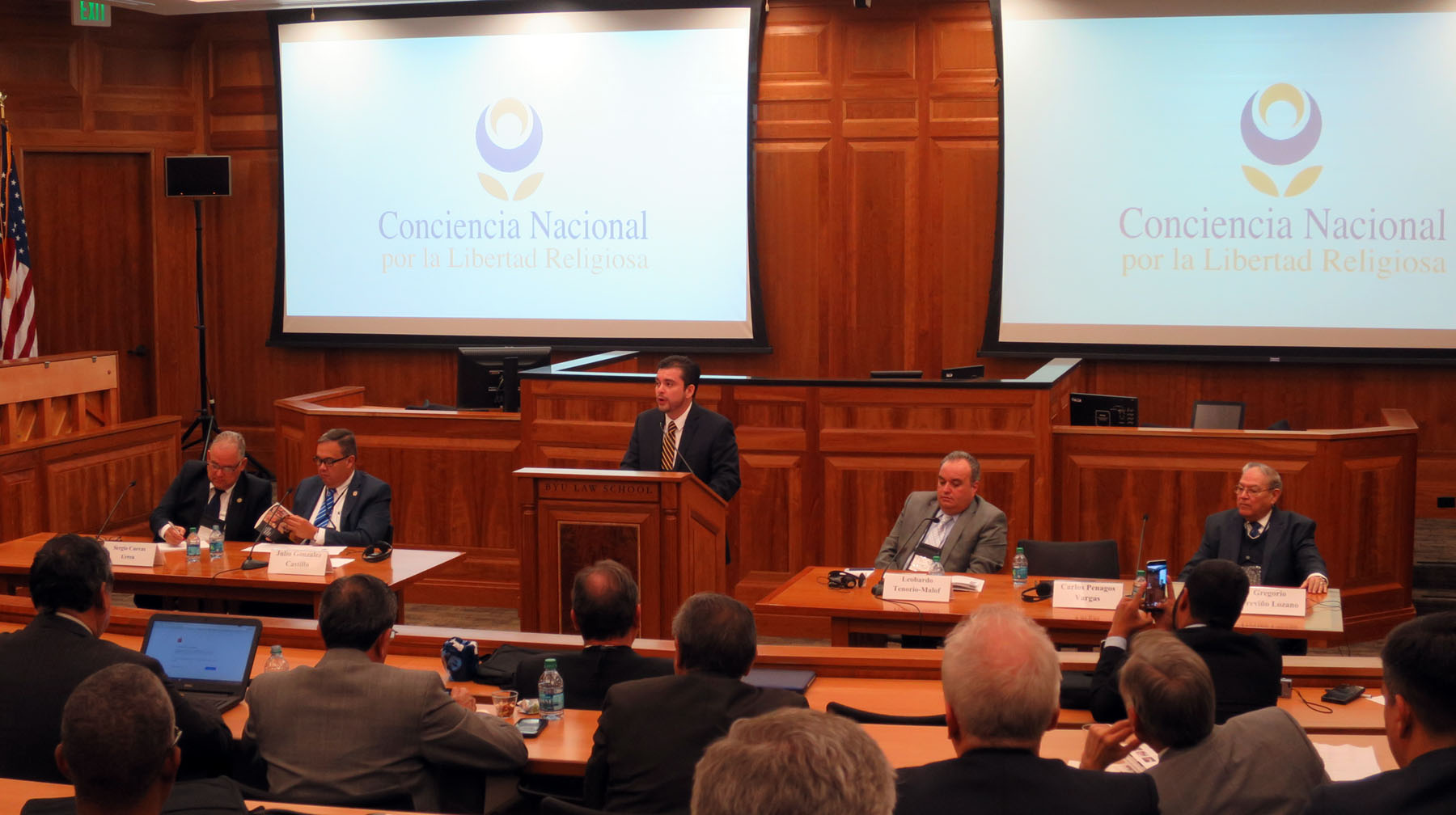Symposium 2016: Mexico

by Jordan Pendergrass
On the first full day of symposium events, a session was dedicated to Mexico. Speakers included Oscar Eduardo Ramírez Aguilar, President, Board of Directors, Congress of the State of Chiapas; Carlos Arturo Penagos Vargas, Member of Congress of the State of Chiapas; Sergio Cuevas Urrea, Vice President, Conciencia Nacional por la Libertad Religiosa; and Julio César González Castillo, Conciencia Nacional por la Libertad Religiosa. The session was moderated by Leobardo Tenorio-Malof, an attorney with the Professional Legal Alliance in Mexico.
Mr. Ramírez spoke about human rights in an international context, and described how they are based in inherent dignity of human beings. He identified three principal international documents that are pertinent to Mexico’s religious freedom framework: the Universal Declaration of Human Rights, the International Covenant on Civil and Political Rights, and the American Convention on Human Rights. He then described the practical impact of religious liberty on significant life events and changes, such as marriage, death, worship, education, military service, incarceration, and more. He described Mexico’s constitutional history and the changed relationship between the Catholic Church and the government of Mexico. He acknowledged periods of darkness and discrimination in Mexico’s past, but he is pleased with the present status and future outlook of religious freedom.
Mr. Penagos spoke more specifically about the experience of Chiapas, and he further described the historical context for Mexico’s modern religious freedom framework. He described a new era in Mexico in which federal law respects religious freedom and churches enjoy property rights. He warned, however, that law is subject to interpretation, and misapplication of the law can prevent complete freedom. One such area of unrealized freedom is seen in the present circumstances of persecuted indigenous persons. Ultimately, he describes the religious freedom project in the same way as Benito Juárez: “Entre los individuos, como entre las naciones, el respeto al derecho ajeno es la paz.”
Mr. Cuevas and Mr. Gonzalez, both affiliated with Conciencia Nacional por la Libertad Religiosa, concluded the session. They described how the work of Brigham Young University in the sphere of religious freedom is good for Mexico and its families. They discussed the nature and mission of their organization, and showed a short video on the topic, which is available at http://www.conciencianacional.org/nosotros.php#video. The organization’s guiding principles, which are founded upon the basis of an individual choice and accountability, are often communicated to government and political leaders. Mr. Gonzalez outlined the social and political changes that encroach upon the rights of religious believers. When such a threat is perceived, he explained, it is not surprising to see public demonstrations of thousands of people.
A brief session of questions and answers followed the prepared remarks of the presenters. The discussion emphasized the question of same-sex marriage in Mexico and the nature of religious influences in public education.